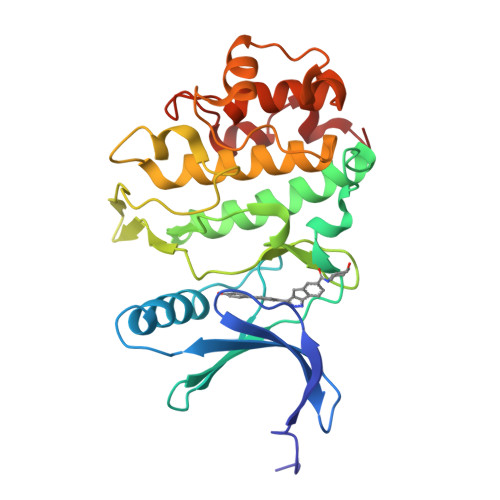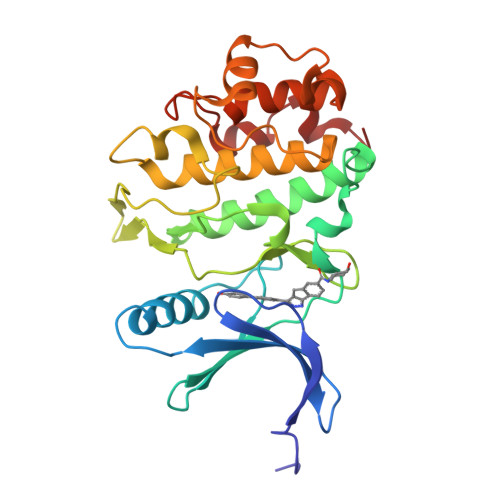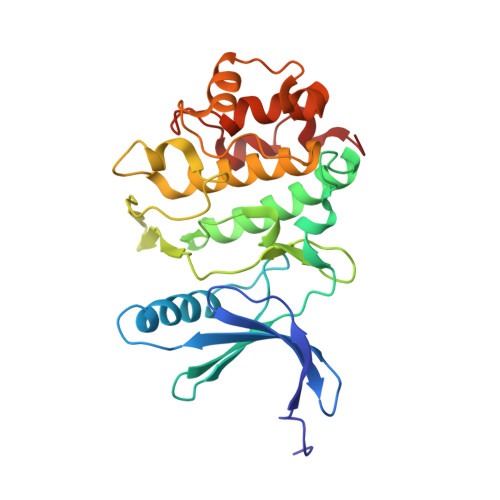Discovery of 1,4-dihydroindeno[1,2-c]pyrazoles as a novel class of potent and selective checkpoint kinase 1 inhibitors.
Tong, Y., Claiborne, A., Stewart, K.D., Park, C., Kovar, P., Chen, Z., Credo, R.B., Gu, W.Z., Gwaltney, S.L., Judge, R.A., Zhang, H., Rosenberg, S.H., Sham, H.L., Sowin, T.J., Lin, N.H.(2007) Bioorg Med Chem 15: 2759-2767
- PubMed: 17287122
- DOI: https://doi.org/10.1016/j.bmc.2007.01.012
- Primary Citation of Related Structures:
2E9N, 2E9O - PubMed Abstract:
A new class of checkpoint kinase 1 (CHK-1) inhibitors bearing a 1,4-dihydroindeno[1,2-c]pyrazole core was developed after initial hits from high throughput screening. The efficient hit-to-lead process was facilitated by X-ray crystallography and led to potent inhibitors (<10nM) against CHK-1. X-ray co-crystal structures of bound inhibitors demonstrated that two sub-series of this class of compounds, exemplified by 21 and 41, exhibit distinctive hydrogen bonding patterns in the specificity pocket of the active site. Two compounds, 41 and 43, were capable of potentiating doxorubicin and camptothecin, both DNA-damaging agents, in cell proliferation assays (MTS and soft agar assays) and abrogating G2/M checkpoint in a mechanism-based FACS assay.
Organizational Affiliation:
Cancer Research, Global Pharmaceutical R&D, Abbott Laboratories, Abbott Park, IL 60064, USA. yunsong.tong@abbott.com

















